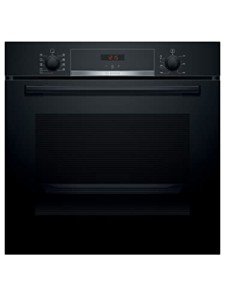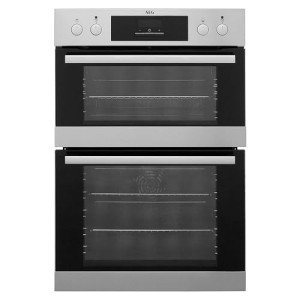Guide To Fitted Ovens And Hobs: The Intermediate Guide For Fitted Oven…
페이지 정보
작성자 Ronald 댓글 0건 조회 8회 작성일 25-05-21 13:59본문
Fitted Ovens and Hobs: An In-Depth Guide to Modern Cooking Appliances
Fitted ovens and hobs have become a staple in modern cooking areas, integrating performance, visual appeals, and ingenious technology. These kitchen appliances are designed to seamlessly incorporate into kitchen surfaces, offering the cooking lover with the tools required for effective meal preparation while keeping a sleek and orderly appearance. In this article, we will check out the various kinds of fitted ovens and hobs, their advantages, aspects to think about when selecting them, and answers to regularly asked concerns.

Understanding Fitted Ovens and Hobs
Fitted ovens and hobs are appliances specifically developed to be built into kitchen cabinetry or counter tops for a smooth appearance. They can differ considerably in design, size, functionality, and functions, which accommodate diverse cooking requirements and kitchen designs.
Kinds Of Fitted Ovens
- built in electric ovens-in Ovens: These ovens are set up straight into a wall or kitchen system and be available in different setups and sizes.
- Double Ovens: A built-in variation that consists of two separate oven compartments, enabling numerous meals to be cooked at differing temperatures all at once.
- Mix Ovens: These flexible appliances integrate conventional baking with microwave innovation.
- Steam Ovens: Ovens that utilize steam for cooking, maintaining moisture in food while boosting flavors and nutrients.
- Single Ovens: A standard oven built in system that is the most common type utilized in homes.
Kinds of Hobs
- Gas Hobs: These make use of burner for cooking, providing instant heat and precise temperature control.
- Electric Hobs: Powered by electricity, these hobs frequently feature smooth surface areas that make them easy to clean.
- Induction Hobs: Utilizing electro-magnetic energy, induction hobs heat cookware straight instead of the hob surface, making them energy efficient and a safe choice.
- Mixed Hobs: These provide both gas and electric options, offering versatility for cooking designs.
Benefits of Fitted Ovens and Hobs
Fitted ovens and hobs use various advantages that improve the cooking experience:
- Space Efficiency: Designed to fit into cabinetry, fitted appliances take up less space compared to standalone designs, creating a streamlined kitchen design.
- Looks: Fitted designs frequently develop a more cohesive and aesthetically enticing kitchen design.
- Customization: Homeowners can pick from a range of styles, finishes, and includes to match their kitchen design and cooking needs.
- Enhanced Functionality: Many modern-day fitted ovens and hobs boast advanced technology, such as wise controls, self-cleaning functions, and accurate temperature level settings, which simplify cooking.
- Security Features: Many hobs, specifically induction designs, have security functions such as vehicle shut-off and kid locks, promoting a much safer cooking environment.
Aspects to Consider When Choosing Fitted Ovens and Hobs
When picking fitted appliances for a kitchen, a number of elements ought to be considered to make sure the right option:
- Cooking Style: Different appliances cater to different cooking practices. Home cooks ought to assess their common meal preparation methods to discover suitable appliances.
- Space and Layout: Measure the offered area in the kitchen to make sure that the chosen appliances fit nicely without preventing movement.
- Energy Efficiency: Choose appliances with energy-efficient ratings to decrease utility expenses and ecological effect.
- Technology and Features: Consider the preferred functions, such as smart technology, self-cleaning modes, or particular cooking functions like steam or convection cooking.
- Spending plan: Determine a spending plan before making choices to make sure that the chosen designs align with financial preparation.
Table: Comparison of Different Types of Ovens and Hobs
| Home appliance Type | Pros | Cons |
|---|---|---|
| Built-in Ovens | Space-saving, adjustable style | Installation expense can be high |
| Double Ovens | Prepare several meals at various temperatures | Uses up more area |
| Steam Ovens | Healthy cooking, keeps nutrients | Usually greater expense |
| Gas Hobs | Quick heat control, preferred by chefs | Requires a gas line setup |
| Induction Hobs | Fast cooking, energy-efficient, safe | Needs compatible pots and pans |
| Electric Hobs | Easy to clean up, stable cooking temperatures | Heating times can be slower |
Frequently Asked Questions (FAQs)
1. What is the difference between a built-in oven and a freestanding oven?
A built-in oven is integrated oven hob & extractor packages into kitchen cabinetry for a seamless look, while a freestanding oven built in stands alone and is frequently more visible and accessible.
2. Are induction hobs safe to use?
Yes, induction hobs are considered safe as they only produce heat when suitable pots and pans is put on them, lowering the risk of burns.
3. Can I install a fitted oven myself?
While some individuals may select to install fitted ovens themselves, it is usually suggested to work with an expert to guarantee right setup and adherence to security standards.
4. What size of oven is ideal for a small kitchen?
In small kitchens, think about compact or single built-in ovens that fit within the offered space without jeopardizing on cooking performance.
5. Do fitted ovens and hobs need unique maintenance?
Fitted appliances need basic upkeep, such as cleaning and regular checks. Nevertheless, particular upkeep jobs depend upon the kind of oven or hob.
In conclusion, fitted ovens and hobs represent the epitome of modern kitchen design and functionality. By understanding their types, benefits, and considerations, fitted ovens customers can make informed options that boost their cooking experiences while fitting perfectly into their home. Whether producing premium meals or preparing family dinners, fitted ovens and hobs are important tools in any culinary area.

댓글목록
등록된 댓글이 없습니다.